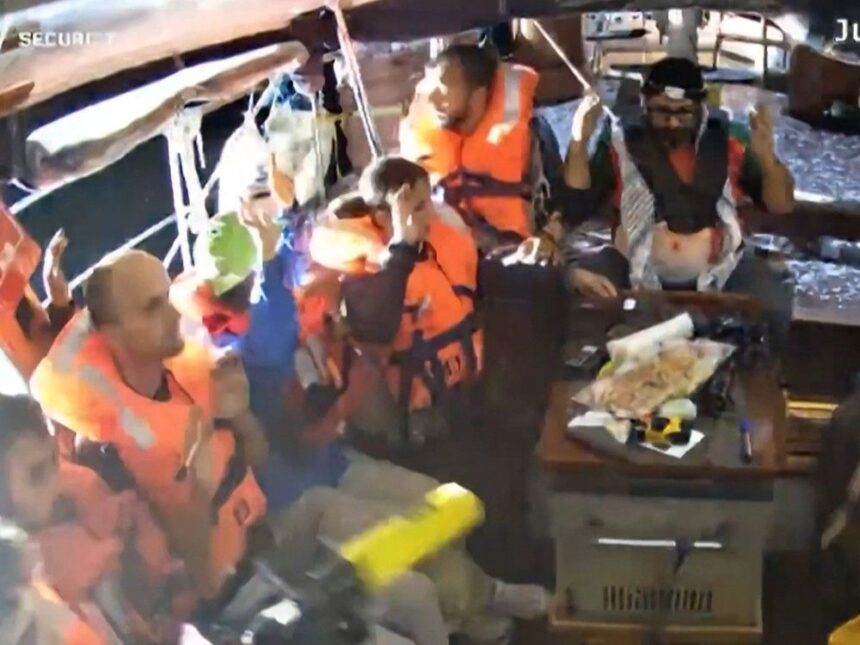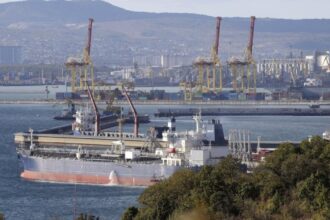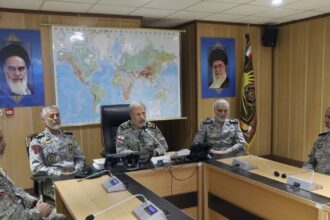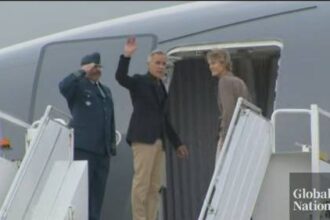In a dramatic turn of events on Saturday, Israeli naval forces intercepted a vessel carrying climate activist Greta Thunberg and other humanitarian workers attempting to deliver medical supplies to Gaza. The “Freedom Flotilla,” consisting of three boats carrying 30 activists and approximately 5.5 tons of aid, was stopped in international waters as it approached the Gaza coast.
The Israeli military confirmed the interception, stating that the vessels were redirected to the Israeli port of Ashdod after what they described as “violating a naval blockade” of the Gaza Strip. According to military officials, the operation was conducted without casualties after the vessels allegedly ignored multiple warnings to change course.
“The boats were intercepted in accordance with international law,” said Israeli Defense Forces spokesperson Rear Admiral Daniel Hagari. “All humanitarian aid intended for Gaza must undergo proper security screening through designated channels.”
Thunberg, who has increasingly shifted her activism to include Palestinian solidarity, was reportedly among those detained during the operation. The 21-year-old Swedish environmentalist had announced her participation in the mission earlier this week, describing it as a humanitarian response to what she called “an unfolding catastrophe” in Gaza.
The Freedom Flotilla Coalition, which organized the journey, released a statement condemning the interception as “an illegal act of aggression in international waters.” According to the organization, the vessels were carrying essential medical supplies, including antibiotics, surgical equipment, and pediatric medications desperately needed in Gaza’s overwhelmed hospitals.
This incident marks the latest in a series of attempts by international activists to break the naval blockade that Israel has maintained around Gaza since 2007, when Hamas took control of the territory. Israel defends the blockade as essential to its security, while critics argue it constitutes collective punishment of Gaza’s 2.3 million residents.
Human rights organizations have raised concerns about the legality of intercepting vessels in international waters. Amnesty International called for the immediate release of all activists and delivery of the humanitarian supplies, noting that “the right to provide humanitarian assistance is protected under international humanitarian law.”
The timing of this interception is particularly significant, coming amid heightened tensions following months of conflict and growing international pressure for increased humanitarian access to Gaza. According to the World Health Organization, Gaza’s healthcare system is “on the brink of collapse,” with critical shortages of medicines and medical equipment.
Thunberg’s involvement has drawn significant attention to the humanitarian situation, with her shift from climate activism to broader human rights advocacy generating both support and criticism. Her supporters praise her for using her platform to highlight humanitarian crises, while critics question her expertise on complex geopolitical issues.
As diplomatic efforts continue to address the humanitarian crisis in Gaza, this incident raises critical questions about the balance between security concerns and humanitarian imperatives. How can the international community ensure essential aid reaches civilian populations in conflict zones while addressing legitimate security concerns of all parties involved?










